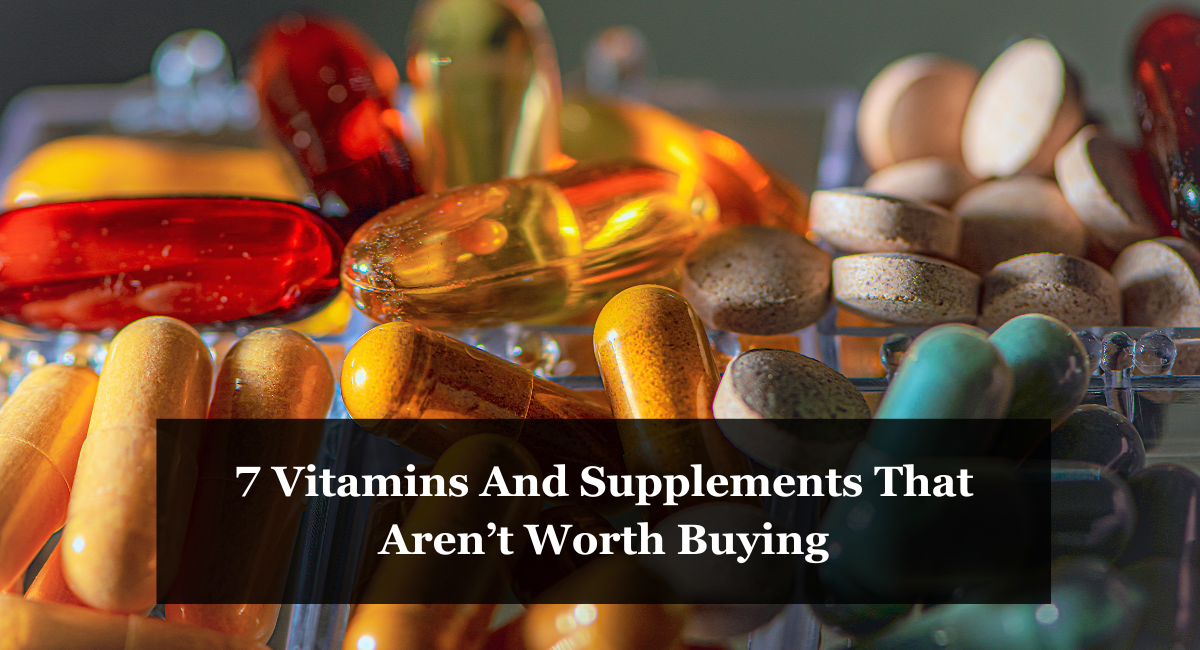In today’s world, the market is flooded with various vitamins and supplements, each promising to improve our health and well-being.
With so many options available, it can be overwhelming to decipher which ones are truly beneficial and which ones are simply not worth the investment.
While certain vitamins and supplements offer significant health benefits when taken correctly, there are others that fall short of their promises. In this blog post, we’ll uncover the truth about seven vitamins and supplements that simply aren’t worth buying.
Multivitamins:
Despite their widespread popularity, multivitamins may not provide the health benefits they claim. Research suggests that most people can obtain all the necessary vitamins and minerals through a balanced diet alone.
Additionally, some studies have even linked multivitamin use to an increased risk of certain health problems.
Vitamin C:
While vitamin C is essential for a healthy immune system and overall well-being, it’s often unnecessary to supplement with high doses.
Most people can meet their daily vitamin C needs through fruits and vegetables such as oranges, strawberries, and bell peppers.
Taking excessive amounts of vitamin C supplements can lead to digestive issues and may even interfere with certain medical treatments.
Vitamin E:
Once hailed as a powerful antioxidant, vitamin E supplements have fallen out of favor in recent years. Research has shown that high doses of vitamin E may increase the risk of bleeding and have little to no impact on heart health.
Instead of relying on supplements, it’s best to obtain vitamin E from foods like nuts, seeds, and vegetable oils.
Fish Oil:
Fish oil supplements are often marketed as a source of omega-3 fatty acids, which are crucial for heart health and brain function.
However, studies have yielded mixed results regarding the effectiveness of fish oil supplements in preventing heart disease and other health conditions.
For most people, consuming fatty fish like salmon and mackerel a few times a week is a better way to obtain omega-3s.
Calcium:
While calcium is important for bone health, taking calcium supplements may not be as beneficial as once thought.
Some studies have suggested that excessive calcium intake from supplements could increase the risk of cardiovascular problems, including heart attacks and strokes.
Instead of relying solely on supplements, focus on consuming calcium-rich foods such as dairy products, leafy greens, and fortified foods.
Iron:
Iron supplements are commonly recommended for individuals with iron deficiency anemia, but they may not be necessary for everyone.
Excessive iron intake can cause digestive upset and may even be harmful, especially for people who already have sufficient iron levels.
It’s best to have your iron levels tested before starting supplementation and to focus on incorporating iron-rich foods like red meat, beans, and fortified cereals into your diet.
Probiotics:
Probiotics are often touted as a remedy for digestive issues and immune support. While there is some evidence to suggest that certain probiotic strains may offer benefits for specific conditions, the overall effectiveness of probiotic supplements remains uncertain.
Additionally, the quality and potency of probiotic supplements can vary greatly, making it difficult to determine which ones are truly beneficial.
In conclusion,
not all vitamins and supplements are created equal. While some may offer significant health benefits when taken as directed, others may be ineffective or even harmful.
Before starting any new supplement regimen, it’s important to consult with a healthcare professional to determine whether it’s necessary and safe for you.
Additionally, focusing on a balanced diet rich in fruits, vegetables, lean proteins, and whole grains is the best way to ensure you’re getting the nutrients your body needs to thrive.





